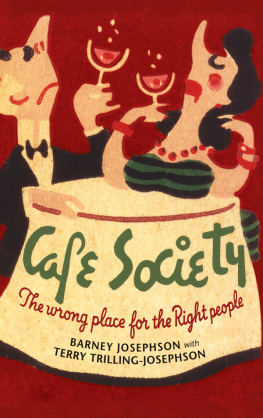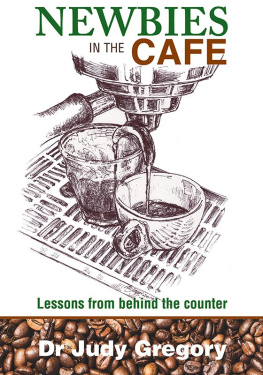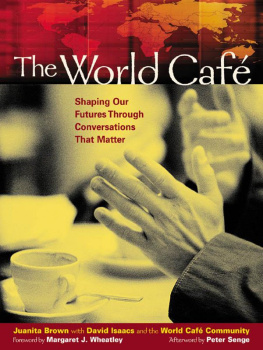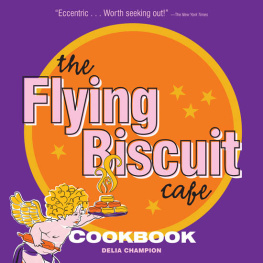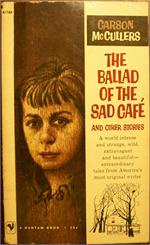Acknowledgments
Terry Trilling-Josephson
T hree men came into my life bearing gifts of encouragement, wisdom, and artistryall because of Barney.
Ted Coons, Professor Edgar Coons, was always there for me with myriad kinds of help. He listened with compassion and understanding, always providing words of reason and reassurance whenever I needed to rail or my computer skills defeated me. I cannot count the untold number of hours that Ted unhesitatingly gave to ease insurmountable (to me) technical formating difficulties. I am ever grateful.
Jean-Claude Baker came to my rescue when publisher contracts were a bafflement; his warmth, exuberance of spirit, and book publishing knowledge were unbounded.
Tad Hershorn, media archivist at the Institute of Jazz Studies at Rutgers University, never knew Barney, but he lent his genius to my photographs and gave of his time beyond time to transforming the imagesa feast for the eyes.
At the beginning, when these pages were only transcriptions of tapes, Don Congdon, my literary agent, had confidence that the pages could become a book and took me on until his retirement. I am everlastingly in Don's debt for giving me the courage to proceed. For the same reason, I will always be grateful to Peter Keepnews, jazz connoisseur for The New York Times, for believing that the disorganized pages he read had the potential to be an important story. Marilyn Stasio, the Timess book reviewer, also was kind in offering advice.
My research was immeasurably facilitated by the awesome skills and courteous assistance of Florence Houser, Josephine Murphy, Adele Schneider, and Jeanne Galvin, librarians at my college (one of twenty-three colleges of the City University of New York), where I was a professor in the Department of Communications and Performing Arts, who located obsolete articles and out-of-print books with ease. My colleagues Norah Chase and Susan OMalley in the English department willingly gave of their time and expertise.
At the impressive International Center of Photography in New York I met Erin Barnett, assistant curator of collections, and Chris George, an archivist, both of whom took special interest in searching the ICP's collections. Janet Kostrevski at Getty Images effected not one but two deep searches for pictures of Cafe Society artists.
Equally helpful were librarians in the Dance, Music, Theatre Divisions on the third floor of the New York Public Library for the Performing Arts at Lincoln Center.
Rob Hudson, associate archivist at Carnegie Hall, found unknown Cafe Society programs, the existence of which was a welcome surprise.
My friend Mikie Harris, assistant to the late John Hammond, brought me in her faithful 1986 Mercedes to Milt Gabler in New Rochelle and to Ira Tucker of the Dixie Hummingbirds at his recording sessions somewhere in Pennsylvania. The Dixie Hummingbirds's biographer, Jerry Zolten, always responded graciously to questions and provided the initial formating of my manuscript.
Ken Bloom, with his contacts in publishing, led me to editor Richard Carlin, who led me to Judy McCulloh, then the executive editor at the University of Illinois Press; she, in turn, introduced me to my editor, Laurie Matheson. When an editor inspires you to believe that she loves your book, what higher praise? Laurie gave me that gift. Her guidance, patience, and support were there to bolster my (sometimes) flagging spirits. I rejoice that Laurie so well understood the story Barney had to tell.
Mary Giles, my copy editor, came late to this book and constantly amazes me with her uncanny keen eye as I abide by her expertise. I am appreciative of her care.
I save special thanks for Dan Morgenstern, author, editor, and chronicler of jazz history. His prodigious harvest of work on behalf of jazz has been vital in helping keep that music alive.
I salute those photographers who freely donated their work in tribute to Barney, images that enhance these pages. Along the way were my friends to cheer me on and acquaintances I never met personally but who proffered good offices.
Above all else, the quiet love and unfailing support of my daughter, Kthe, allowed me the luxury of knowing I had someone on whom to call any time.
Barney Josephson (190288) was a nightclub impresario in New York City.
Terry Trilling-Josephson is a former actress, off-Broadway theater producer, and speech-language pathologist. She is associate professor of communications and performing arts, The City University of New York.
Dan Morgenstern is the director of the Institute of Jazz Studies at Rutgers University and has written widely about jazz.
Music in American Life
Only a Miner: Studies in Recorded Coal-Mining SongsArchie Green
Great Day Coming: Folk Music and the American LeftR. Serge Denisoff
John Philip Sousa: A Descriptive Catalog of His WorksPaul E. Bierley
The Hell-Bound Train: A Cowboy SongbookGlenn Ohrlin
Oh, Didn't He Ramble: The Life Story of Lee Collins, as Told to Mary CollinsEdited by Frank J. Gillis and John W. Miner
American Labor Songs of the Nineteenth CenturyPhilip S. Foner
Stars of Country Music: Uncle Dave Macon to Johnny RodriguezEdited by Bill C. Malone and Judith McCulloh
Git Along, Little Dogies: Songs and Songmakers of the American WestJohn I. White
A Texas-Mexican Cancionero: Folksongs of the Lower BorderAmrico Paredes
San Antonio Rose: The Life and Music of Bob WillsCharles R. Townsend
Early Downhome Blues: A Musical and Cultural AnalysisJeff Todd Titon
An Ives Celebration: Papers and Panels of the Charles Ives Centennial Festival-ConferenceEdited by H. Wiley Hitchcock and Vivian Perlis
Sinful Tunes and Spirituals: Black Folk Music to the Civil WarDena J. Epstein
Joe Scott, the Woodsman-SongmakerEdward D. Ives
Jimmie Rodgers: The Life and Times of America's Blue YodelerNolan Porterfield
Early American Music Engraving and Printing: A History of Music Publishing in America from 1787 to 1825, with Commentary on Earlier and Later PracticesRichard J. Wolfe
Sing a Sad Song: The Life of Hank WilliamsRoger M. Williams
Long Steel Rail: The Railroad in American FolksongNorm Cohen
Resources of American Music History: A Directory of Source Materials from Colonial Times to World War IID. W. Krummel, Jean Geil, Doris J. Dyen, and Deane L. Root
Tenement Songs: The Popular Music of the Jewish ImmigrantsMark Slobin
Ozark FolksongsVance Randolph; edited and abridged by Norm Cohen
Oscar Sonneck and American MusicEdited by William Lichtenwanger
Bluegrass Breakdown: The Making of the Old Southern SoundRobert Cantwell
Bluegrass: A HistoryNeil V. Rosenberg
Music at the White House: A History of the American SpiritElise K. Kirk
Red River Blues: The Blues Tradition in the SoutheastBruce Bastin
Good Friends and Bad Enemies: Robert Winslow Gordon and the Study of American FolksongDebora Kodish
Fiddlin Georgia Crazy: Fiddlin John Carson, His Real World, and the World of His SongsGene Wiggins
America's Music: From the Pilgrims to the Present (rev. 3d ed.)Gilbert Chase
Secular Music in Colonial Annapolis: The Tuesday Club, 174556John Barry Talley
Bibliographical Handbook of American MusicD. W. Krummel
Goin to Kansas CityNathan W. Pearson, Jr.
Susanna, Jeanie, and The Old Folks at Home: The Songs of Stephen C. Foster from His Time to Ours (2d ed.)William W. Austin
Songprints: The Musical Experience of Five Shoshone WomenJudith Vander

